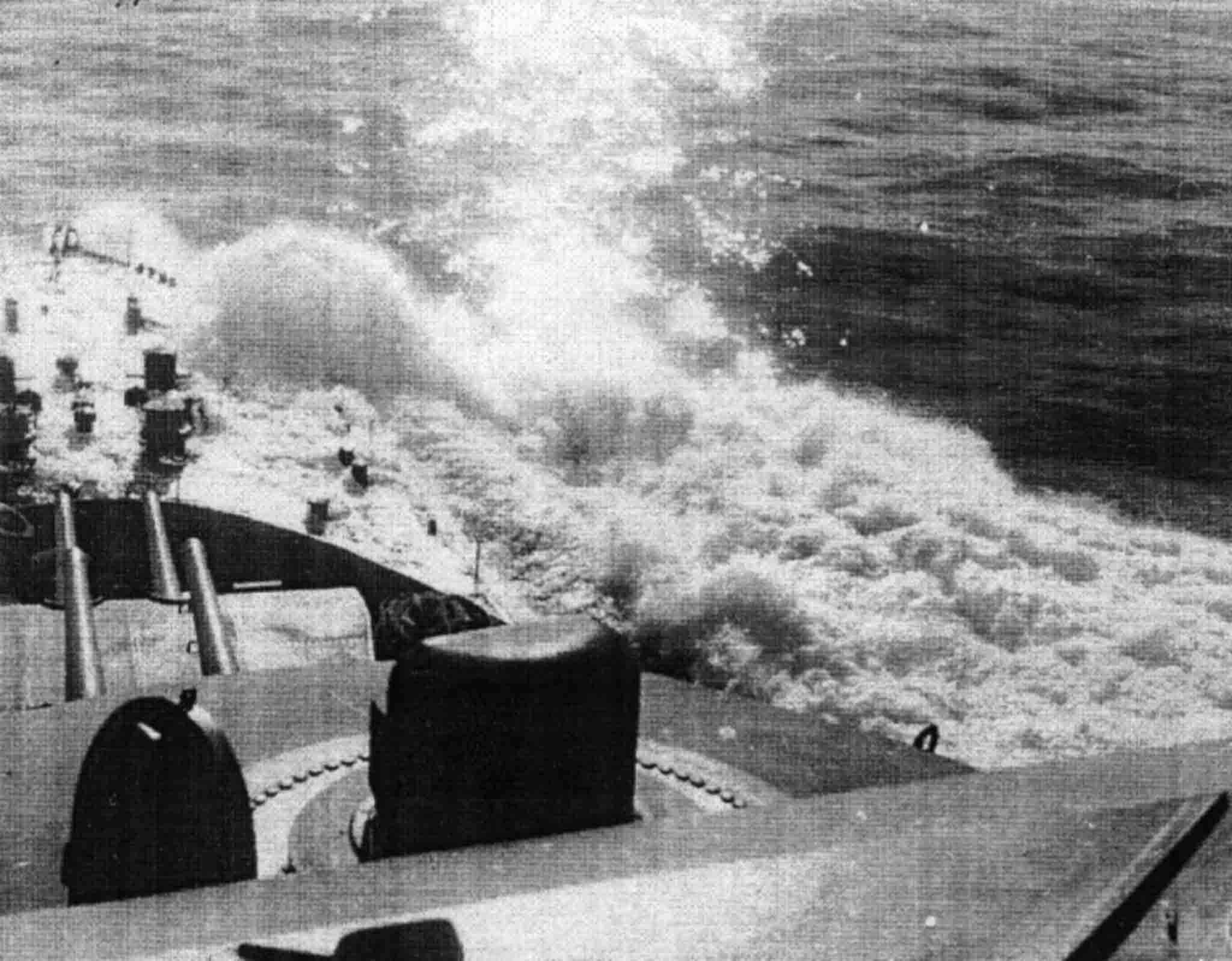
World War 2 photo: The bow end of the Tashkent destroyer buries into the incoming waves due to a strong trim on the bow. The Eastern Front.
At the end of June 1942 the position of the defenders of Sevastopol became critical – the city was not kept. June 26, through the German naval blockade in Sevastopol, broke the last of the largest surface ships – the Tashkent destroyer. The ship took on board more than 2100 people and 86 surviving fragments of the panorama of Roubaud Defense of Sevastopol 1854-1855 and at night June 27, 1942, left Sevastopol.
From 5 am to 9 am on June 27, 1942, the leader reflected a group raid of 86 enemy bombers. Fascist aircraft dropped 336 bombs on the ship. Thanks to skillful maneuvering, direct hits were avoided (only one 250 kg bomb struck a slip in the area of the left anchor, but did not explode and drowned), but from close ruptures the ship suffered many injuries:
– flooded the tiller compartment;
– flooded the first and partly the second boiler rooms;
– Inundated the central artillery post, the second art-staircase and the cockpit No. 3;
– a crack formed on the upper deck.
As a result, the trim on the nose increased, the nose tip plunged into the water to the anchor hawks. The ship began to burrow into the wave, its speed dropped to 13 knots. To straighten the ship, there were flooded free food fuel tanks, cockpit No. 5, artillery № 3 and cellars of small caliber.
At 20.15, Tashkent destroyer by the tugboat arrived at the entrance to the harbor of Novorossiysk.
Location: Black Sea, USSR
Date of the photo: 27 June 1942